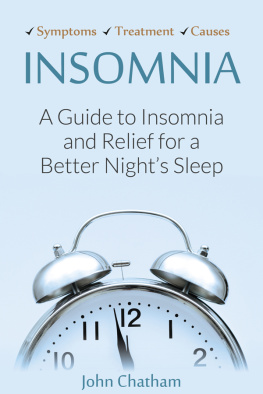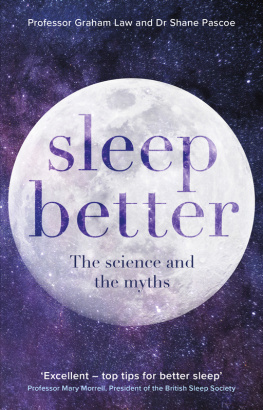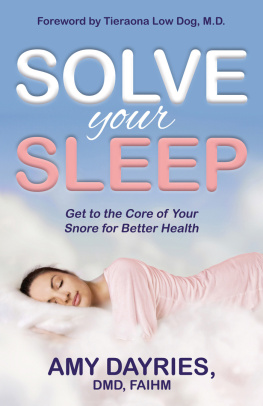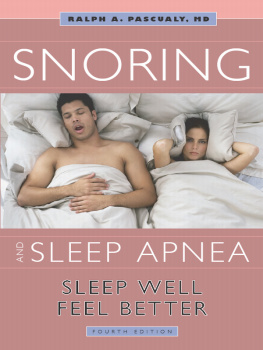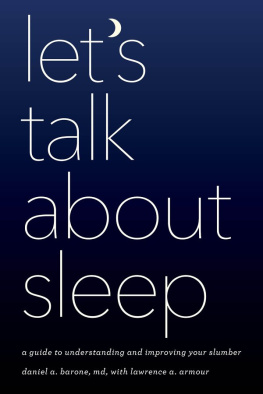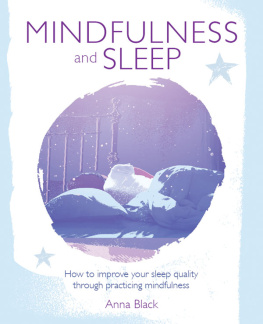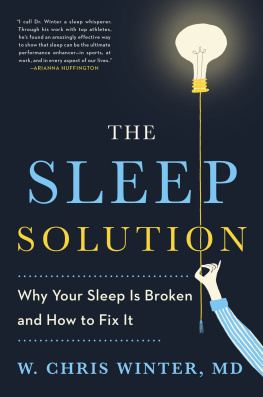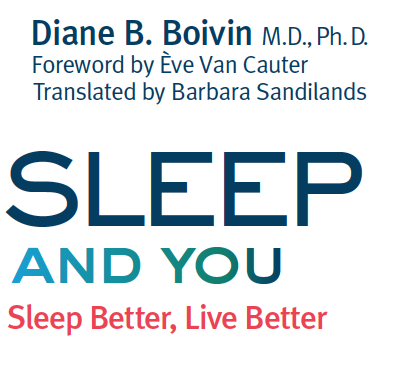By the Same Author
Boivin, D.B., and A. Shechter. Light and Melatonin Treatment for Shift Work. In Encyclopedia of Sleep , ed. Clete A. Kushida. Amsterdam: Elsevier Press (forthcoming).
Boivin, D.B., and A. Shechter. Light Therapy. In Encyclopedia of the Neurological Sciences , 2nd edition, eds. M.J. Aminof and R.B. Daroff. Amsterdam: Elsevier Press (forthcoming).
Boivin, D.B. Jet lag. In Encyclopedia of the Neurosciences, ed. Kate Miklaszewska-Gorczyca. Amsterdam: Elsevier Press (forthcoming).
Boivin, D.B., and P. Boudreau.Les troubles du sommeil et des rythmes circadiens. In Les troubles du sommeil , ed. M. Billard and Y. Dauvilliers. Paris: Masson, 2011.
Boivin, D.B. Disturbances of Hormonal Circadian Rhythms in Shift Workers. In Neuro- endocrine Correlates of Sleep/Wakefulness , eds. D. P. Cardinali and S. R. Pandi- Perumal. New York: Springer, 2006.
Boivin, D.B., G.M. Tremblay, and P. Boudreau. Les horaires rotatifs chez les policiers :tude des approches prventives complmentaires de rduction de la fatigue . Montreal: Institut de recherche Robert-Sauv en sant et en scurit du travail (IRSST), 2010.
Boivin, D.B., and F.O. James. Prvention par la photothrapie des troubles dadaptation au travail de nuit . Montreal: Institut de recherche Robert-Sauv en sant et en scurit du travail (IRSST), 2002.
Boivin, D.B. Comment rduire les effets ngatifs du travail de nuit sur la sant et la performance ? Gestion (HEC Montreal) 35, no. 3:47-52, 2010.
Copyright
Copyright 2012 Les ditions du Trcarr
Originally published as Le Sommeil et vous: Mieux dormer, mieux vivre
Published under arrangement with Groupe Librex Inc., doing business under the name ditions du Trcarr, Montral, QC, Canada
All rights reserved. No part of this publication may be reproduced, stored in a retrieval system, or transmitted in any form or by any means, electronic, mechanical, photocopying, recording, or otherwise (except for brief passages for purposes of review) without the prior permission of Dundurn Press. Permission to photocopy should be requested from Access Copyright.
Editor: Michael Melgaard
Design: Courtney Horner
Epub Design: Carmen Giraudy
Library and Archives Canada Cataloguing in Publication
Boivin, Diane B., author
Sleep and you : sleep better, live better / Diane B. Boivin
; foreword by ve Van Cauter.
Issued in print and electronic formats.
ISBN 978-1-4597-2352-8
1. Sleep--Popular works. I. Title.
RA786.B65 2015 612.821 C2014-904990-0
C2014-904991-9
We acknowledge the support of the Canada Council for the Arts and the Ontario Arts Council for our publishing program. We also acknowledge the financial support of the Government of Canada through the Canada Book Fund and Livres Canada Books, and the Government of Ontario through the Ontario Book Publishing Tax Credit and the Ontario Media Development Corporation.
Care has been taken to trace the ownership of copyright material used in this book. The author and the publisher welcome any information enabling them to rectify any references or credits in subsequent editions.
J. Kirk Howard, President
The publisher is not responsible for websites or their content unless they are owned by the publisher.
Visit us at: Dundurn.com
@dundurnpress
Facebook.com/dundurnpress
Pinterest.com/dundurnpress
Dedication
I dedicate this book to Johanne, who has always been by my side,
and to Guillaume, my steadfast companion.
To my parents for all the love they gave me.
To Catherine and Christine for their invaluable advice.
Thank you to all my friends for the evenings of wining and dining.
Thank you to all the employees and enthusiastic students at the Douglas Institutes Centre for Study and Treatment of Circadian Rhythms.
Foreword
Sleep is a part of everyday life and the subject of familiar expressions Good night, Did you sleep well? but its also a topic we are asking ourselves more and more questions about. Long a little-explored frontier of the neurosciences, our understanding of the mechanisms that control sleep has made remarkable strides in recent decades. Paradoxically, in the same period, a relatively new behaviour pattern has become widespread in industrialized societies: partial sleep deprivation that, day after day, lets us work longer hours, stay up later to amuse ourselves, and increases the time we spend on activities, right to the limit of what is tolerable. Thanks to artificial light, modern man has gradually developed this uniquely human behaviour pattern: no other mammal chronically deprives itself of sleep. Yet while this behaviour pattern is abnormal in terms of our biology, it is still often admired and envied! Nonetheless, fatigue, difficulties in concentrating, the feeling of being inefficient and in a bad mood the price paid by many for hours stolen from sleep make us wonder: Is a manager who boasts about only getting four or five hours of sleep a night a hero or a fool?
To shed light on this complex and fascinating subject, Diane B. Boivin has written a rigorous book dealing with ideas on the cutting edge of current neurological and chronobiological research. In it she explains, in a clear and easily understandable way, why quality sleep is essential for good mental and physical health.
Many years ago, I tried to persuade Diane to come and work in my laboratory at the University of Chicago. In the end, she chose Harvard, where she made her way flawlessly through a highly charged environment, followed by a brilliant career at McGill University. The invitation to write the foreword to her first book written for the general public stems from years of respect, admiration, and friendly collegiality. It gives me the opportunity to briefly touch on my pet subject the interactions between endemic sleep debt and the obesity and diabetes epidemics.
Since we sleep less and less, its becoming more and more important to understand just how disastrous the consequences of inadequate or poor-quality sleep can be. My laboratory has been focusing on this subject for nearly fifteen years. Our initial results have encouraged other teams to explore the close connections between sleep, hormonal regulation, and cardio-metabolic risk. Its now well established that insufficient sleep has harmful effects on the hormones involved in appetite control. Limiting sleep time to four or five hours for less than a week leads to an appreciable increase in resistance to insulin, a hormone that is key to regulating glucose and lipids.
Short sleepers do exist and are described as people who manage to function reasonably well, both biologically and psychologically, on six hours a night or less, night after night. But these individuals appear to represent less than 10 percent of the population. In reality, many people who say they are short sleepers need more sleep than they think they do. The overall message of more than a hundred studies is that most adults need at least seven hours of sleep to stay biologically and psychologically healthy.


